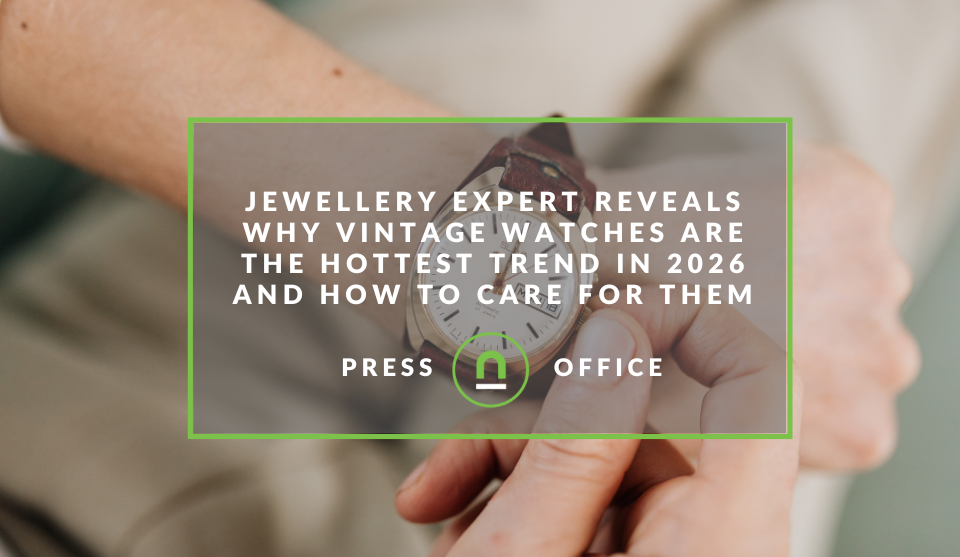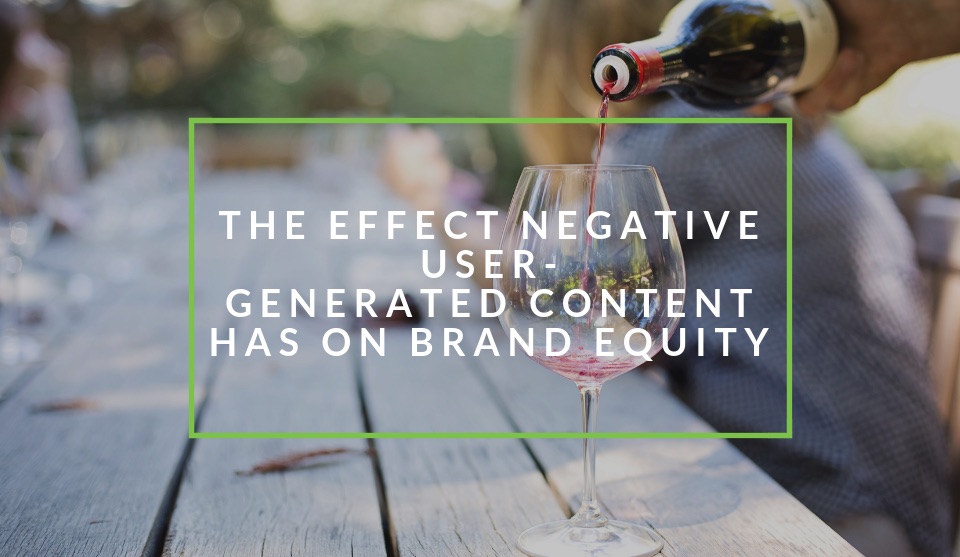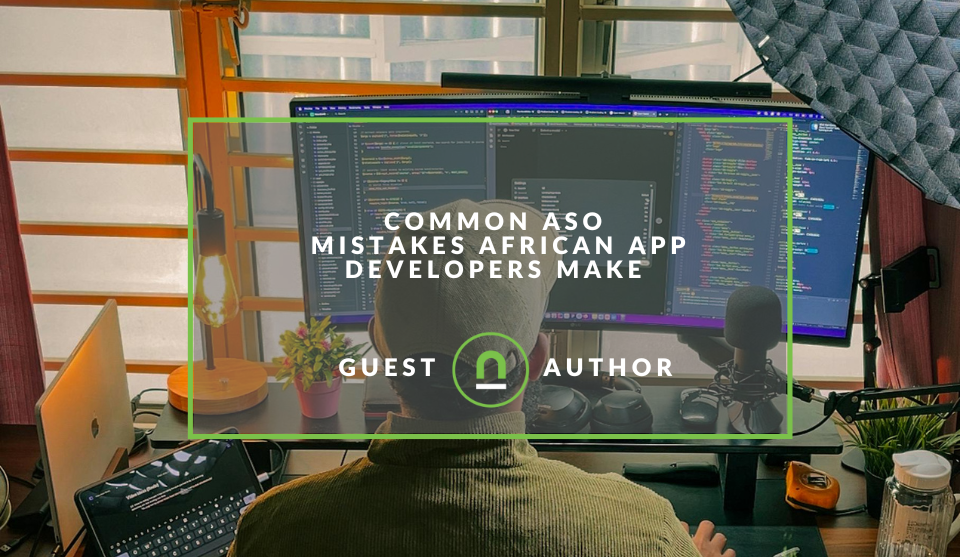Recent posts

Money Talks
XRP vs. Stablecoins: Which Is Better for Cross-Border Payments in 2026?
28 January 2026

Press Releases
Sleep Expert Cautioning Against TikTok’s ‘Mouth Taping’ Trend
28 January 2026

Press Releases
Why Vintage Watches Are the Hottest Trend in 2026
27 January 2026

Press Releases
Africaworks Accelerates The Rollout Of Real Estate Investment Platform
20 January 2026
Popular posts
Extravaganza
Trending Music Hashtags To Get Your Posts Noticed
24 August 2018
Geek Chic
How To Fix iPhone/iPad Only Charging In Certain Positions
05 July 2020
Extravaganza
Trending Wedding Hashtags To Get Your Posts Noticed
18 September 2018
Money Talks
How To Find Coupons & Vouchers Online In South Africa
28 March 2019
The Effect Negative User Generated Content Has On Brand Equity
01 March 2019 | 0 comments | Posted by Claire Wouters in Industry Experts
Claire Wouters is a digital marketer by trade and the founder of Coconut Dreams. In today's post, she takes us through the impact of harmful content posted on social media and how it can affect consumer perceptions and ultimately brand equity.
Social media has given users an easily accessible public forum to disseminate their opinions on a wide range of topics. Social media users share there experiences and views on a variety of issues every day, and many of these opinions can be centred around interactions with businesses and brands. As social media has become a mainstream source of news the content posted on sites like Facebook, Twitter, Instagram and the like can have far-reaching implications for brands.
With the rise of user-generated content (UGC), negative UGC could have disastrous consequences for brands: One single post could easily spread like a virus, might even go viral leaving brand managers with no power in limiting the damage. Negative UGC contributes towards an overall negative brand perception, which harms the process of building long-term consumer-based brand equity (CBBE).
In a bid to drill down on how widespread the impact of UGC can be I decided to study its effects in a market where brand equity has a decidedly high influence in purchase behaviour. CBBE is especially relevant for luxury brands, where decisions are heavily reliant on brand perceptions, and perceptions contrary to or different from exclusivity could be established. Luxury wines, in particular, are complex products in the mind of the consumer: wine customers are overwhelmed by too many choices in wine brands with very few objectives decision cues. While CBBE is critical in an extremely competitive wine market, little research has been done on CBBE of luxury wines.
How consumers can react to seeing negative UGC
My study used an experimental research design, and 154 respondents participated in a quasi-experimental design that tested the effect of fictitious negative UGC, that appeared on Facebook, on CBBE. This study found that negative UGC reduces CBBE and customers’ perception of the luxury brand is damaged after exposure to negative UGC. Brand loyal customers’ CBBE had the greatest decrease, which supports the ‘love becomes hate’ argument.
My study, therefore, questions whether CBBE is affected through negative UGC, and if that effect is different for brand loyal versus non-loyal customers.
The “love becomes hate” argument proposes that loyal consumers are more impacted by extreme negative UGC because betrayal in brand trust leads to strong CBBE damage.
While the “love is blind” argument, on the other hand, proposes that loyal customers are more forgiving towards negative UGC because of their relationship with the brand. Moreover, non-loyal consumers are more influenced by negative UGC, since they exclude brands easily in a decision-making process after consuming negative UGC.
Previous researches regarding CBBE have not found evidence yet of how negative UGC impacts the perception of brand loyal and non-loyal wine consumers. This study, therefore, attempted to understand this phenomenon in the luxury wine context better.
To truly understand the impact of negative UGC on CBBE, I made use of Aaker’s four-asset CBBE model. This model proposes that CBBE consists of brand awareness, brand associations, perceived quality, and brand loyalty.
Results of my study
After reviewing the data, I found brand loyal customers are not blind for negative UGC but are more likely to purchase, recommend and trust another wine brand in the future. Thus, brand managers cannot count on their brand loyal customers in times of social media crisis and deserve extra attention when a brand is actively targeted negatively.
The risk also occurs that affected brand loyal customers experienced such a strong disappointment that they intentionally produce negative UGC online to feel justice for the betrayal the brand caused to them. Companies also cannot count on support from non-loyal customers in negatively valued online conversations on social media platforms, since the impact of negative UGC on non-loyal customers decreased as well.
Not only is the CBBE of brand loyal customers more damaged through non-loyal customers, but the results of the experiment also show that each dimension decreased more for brand loyal customers after the treatment. The ‘love becomes hate’ effect, therefore, happened to each CBBE dimension.
How marketers should handle negative UGC
Marketing managers, therefore, need to understand the risks of UGC on CBBE and set up an online brand strategy with contingencies for possible issues and how to act and react to negative UGC to prevent CBBE from being damaged. They also need to pay particular care in managing loyal customers’ to limit the exposure to negative UGC and reduce the likelihood consumers will turn to social media to express their frustrations.
About the author
Claire is a digital marketer with a keen sense for all things social media marketing related. When she's not besotted with visiting Cape Town and a glass of wine she spends her time working on her eCommerce site in the Netherlands called Coconut Dreams
Recommend reading
If you enjoyed this post and have time to dive deeper down this rabbit hole of negative customer perceptions then we recommend you check out the following articles too:
- Are Negative Brand Associations Always a Bad Thing?
- Social Media No Longer Community Driven It's A Mass Messaging Tool
Tags: brand , social media
You might also like
Why Vintage Watches Are the Hottest Trend in 2026
27 January 2026
Posted by Phoebe B in Press Releases
Jewellery expert reveals why vintage watches are the hottest trend in 2026 and how to care for them while you build your watch collection
Read moreCommon ASO Mistakes African App Developers Make
09 January 2026
Posted by Daniel Davis in Industry Experts
ASO is Localisation, Not Translation: Failing to research specific local search terms and cultural nuances is the biggest ASO error in African market...
Read more{{comment.sUserName}}
{{comment.iDayLastEdit}} day ago
{{comment.iDayLastEdit}} days ago
 {{blogcategory.sCategoryName}}
{{blogcategory.sCategoryName}}

